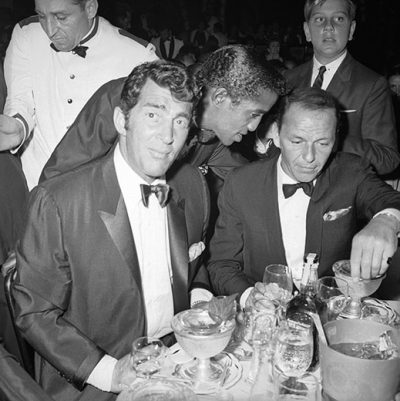
There is something about Frank Sinatra, who would have turned 100 this year. It’s not just his music, but his public persona, his Jersey roots and his glamorous life. Most of all, it’s the emotional connection that millions still have with the skinny kid from Hoboken who became a global icon.
In the Newark neighborhood where I grew up, all the elders idolized Sinatra and that other Italian-American icon, Joe DiMaggio. They told stories about Joe D. while we listened to Sinatra’s music. My mother gossiped endlessly about Sinatra’s relationship with her favorite actress, Ava Gardner—the only woman whom Sinatra couldn’t control or possess, as my mom explained it.
I never met Sinatra, but he is part of my family’s history. Let me share a little story, which admittedly doesn’t testify to the gracious and generous side of Sinatra, but is part of his legend nonetheless.
My late uncle, Mike Adubato (my father’s brother), had a passion for Sinatra. Uncle Mike had a great voice—he wanted to be a singer—and performed in clubs in our neighborhood. But Mike moved on to other things and later became a distinguished state assemblyman. In January 1984, I joined him in the Assembly—the Legislature’s youngest member. No sooner had I taken my seat than Uncle Mike thrust himself into the middle of a controversy surrounding the state’s most famous celebrity.
It started at the Golden Nugget in Atlantic City, where Sinatra and Dean Martin were scheduled to perform. The two stars were in the casino playing blackjack when Sinatra insisted he be dealt his cards by hand instead of out of the plastic “shoe”—as required by state law. When the dealer refused, Sinatra allegedly made an ethnic slur; the dealer was of Asian descent. She ultimately relented and dealt the cards by hand, violating the rules.
The Golden Nugget was fined $25,000 by the Casino Control Commission; its commissioner, Joel Jacobsen, would later call Sinatra an “obnoxious bully” for his behavior. In protest, Sinatra broke his contract with the Golden Nugget, saying he would never again perform in New Jersey if state officials were going to treat him this way.
Incensed by the way Sinatra was treated, Uncle Mike decided to propose a resolution that New Jersey officially apologize to the entertainer and ask him to return to his home state. My father—himself a major political force in the state—thought it was a bad idea and told me to make sure Mike didn’t bring it up in the Statehouse. My father understood that many legislators were exasperated by Sinatra’s behavior and threatened to walk out if my uncle presented the resolution.
Although Uncle Mike promised he’d drop the idea, he eventually reneged. Addressing the Assembly, he said the members should call on Sinatra, “our native son, to return to New Jersey, the home of your parents, Dolly and Marty Sinatra. Frank, come back to your roots. Come home to New Jersey. I love you.”
As feared, several legislators walked out. Others protested loudly. I sat in the Assembly chamber in fear and shock. Ultimately, Uncle Mike withdrew the resolution before a vote could be taken. As for Sinatra, he didn’t seem to hold a grudge. He returned to the Golden Nugget the very next year, playing seven shows from October 9 to 13, 1985. Just part of the Sinatra lore in New Jersey.



